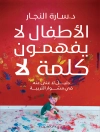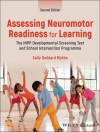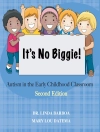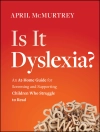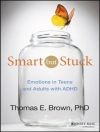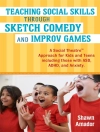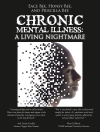* Research-based, classroom-tested
* Teaches children skills for long-term success
* Fosters social skills, proactivity, perseverance, and more
The 6 Success Factors for Children with Learning Disabilities
Ready-to-Use Activities to Help Kids with Learning Disabilities Succeed in School and in Life
From the acclaimed Frostig Center comes a valuable resource for teachers and parents of children with learning disabilities. Based on a 20-year study, Frostig research has revealed six attributes that lead to long-term success for individuals with LD. This book helps teachers identify and encourage the growth of characteristics that will help students thrive in the classroom, at home, and in social situations. The book offers an array of classroom-tested, engaging activities–complete with reproducible worksheets–that have been proven to foster the ‘success attributes’ in children.
The six attributes identified by the Frostig Center are:
* Self-awareness
* Proactivity
* Perseverance
* Goal setting
* Use of social support systems
* Emotional coping strategies
Each of the book’s activities contains a lesson plan with goals, materials, and procedures, including teaching instructions and reproducible student worksheets. The book is designed to be both flexible and easy-to-use. All activities can be modified to accommodate a variety of learners.
Praise for The 6 Success Factors for Children with Learning Disabilities
‘Provides educators, parents, and other caregivers with pragmatic and measurable strategies to foster maturity and independence…The activities demonstrate that success is not amorphous and unattainable–rather, it can be achieved by adopting an established set of behaviors, attitudes, and characteristics. [This book] will be enormously useful as you prepare your students for their journey to adulthood.’
–From the foreword by Richard D. Lavoie, bestselling author, It’s So Much Work to be Your Friend and The Motivation Breakthrough
Inhoudsopgave
About This Book ix
Foreword by Richard D. Lavoie xi
About the Frostig Center xv
The Contributors xvii
Acknowledgments xix
Introduction xxi
Chapter 1: Self-Awareness 1
Introduction to Self-Awareness 2
Rating Yourself 5
Check for Understanding Self-Awareness 7
Describing Self 10
Describing Likes and Dislikes 13
Compare and Contrast Success Attributes 15
I See Me, You See Me 17
Check Out Sparktop.org 19
Identify Favorite Activities 21
Freaky Friday 23
I Feel Good About Me 26
Chapter 2: Proactivity 29
Introduction to Proactivity 30
Finding Help 33
Unlock Closed Doors 35
Ask the Experts 37
Take Action 40
Make the Solution Work for You 44
How Most People Find Jobs 46
Am I Ready to Be On My Own? 48
What Do I Know? What Must I Learn? 51
One Step at a Time 55
Chapter 3: Perseverance 59
Introduction to Perseverance 60
Help by Example 62
Don’t Quit 65
Help with Hanging in There 68
Playing Games and Persevering 71
Preseverance Award 75
Worka Out! Hold On to That Job! 77
Occupations, Job Searching 80
After-School Goals 82
Long-Range Plans 85
Chapter 4: Goal Setting 87
Introduction to Goal Setting 88
Plan a Party 90
Shop ’til You Drop 92
School Tour 94
Book Report 96
Criminal Investigation 99
Where I Am and Where I Want to Be 101
Road Map to Success 104
Step-by-Step to Achievement 106
What Do I Know About Me? 109
Chapter 5: Social Support Systems 113
Introduction to the Use of Effective Social Support Systems 114
Friendship Rating Scale 116
Who You Gonna Call? 119
Strength in Numbers 122
‘And Seldom is Heard . . .’: Discouraging Words or Deeds 125
Imagine Me, Imagine You 128
What’s New? 131
Getting to Know You 134
Human Helpers: Accommodations for School, Work, and Life 137
Delightful Disclosure 140
Delightful Disclosure Award 141
Chapter 6: Emotional Coping Strategies 143
Introduction to Emotional Coping Strategies 144
Group Roles 146
A Mile in Your Shoes 150
First Steps 152
What Helps? 156
How Does it Feel? 160
Do Something! 163
Name Your Bandages 165
Help Me Cope 167
Welcome, Stranger 169
Appendix A: Resources for Fostering the Success Attributes 171
Appendix B: Assessments 187
References 199
Index 201
Over de auteur
The Frostig Center, founded in 1951, helps children with learning disabilities through their private school, research center, and teacher training division. Frostig’s training department offers professional development for general and special education teachers in public, private, and parochial schools. Their areas of expertise include identifying learning disabilities; reading, writing, and math instruction; and behavior management strategies for struggling learners.


